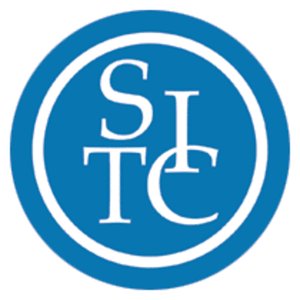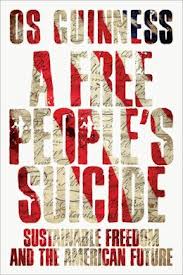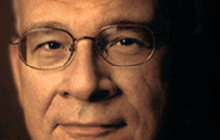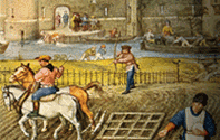By James F. McGrath
The following is a critical evaluation of the points Os Guinness makes in his book A Free People’s Suicide: Sustainable Freedom and the American Future, on which the previous presentation was based:
I am grateful to have been given the opportunity to participate in the Patheos Book Club discussion of Os Guinness’ book A Free People’s Suicide: Sustainable Freedom and the American Future (Downers Grove: InterVarsity Press, 2012). The book raises many important issues, and a vibrant challenge to Americans to not allow our republic to go the way of Rome’s. Whether and to what extent the book offers the necessary solutions to the issues it highlights, answers to the questions it raises, or guidance on where to find those solutions and answer, then I can only answer by saying “to some extent yes, and to some extent no.”
Guinness’ book is many things in a single short volume: An appeal by an outsider to Americans who are infamous for ignoring criticisms, particularly from those who are not originally from here; a historical investigation into the thinking of the founding fathers; an appeal to return to roots; a warning about the fate of all empires before our own; the list could go on. In all of the above, Guinness has interesting, insightful, and provocative things to say.
Early in the book, one of the many threads that will run through it is introduced, the paradox that “the greatest enemy of freedom is freedom” (p.19). This paradox itself has many aspects, not least of which in Guinness’ view is the penchant for liberty to be replaced with mere non-interference in our individual lives, choices, money, etc. Another is the fact that there can be no infinitely unrestrained individual freedom in a truly free society. Otherwise, one person’s unrestrained freedom will quickly work towards the oppression of another. As Guinness puts it on pp.66-67, drawing on Madison,
“Unless rival competes with rival, power counteracts power and ambition checks ambition, one person’s unrestrained freedom will be a weaker person’s unrestrained oppression. Then the peaceable kingdom will be impossible. The lamb can never lie down with the lion, for freedom for the lion will mean death for the lamb.”
And so, however paradoxically, a truly free society must be ordered, and Guinness focuses specific attention on this second key step in the founders’ work. After winning freedom, the next step has to be ordering freedom, with the third step that which features on the cover and remains for us to accomplish for our generation: sustaining freedom.
And so the book explores the nature of true liberty and how it is to be sustained from one generation to the next. A key, and in my opinion clearly correct, point which Guinness makes is that law alone cannot preserve freedom. If there is no ethical buy-in on the part of the citizens about the nature of freedom and the value in preserving it, law cannot rectify the situation.
Guinness outlines what he calls the “golden triangle” which the founders intended to serve, alongside the system of checks and balances, to safeguard freedom. The triangle, reduced to its points, is that freedom requires virtue, virtue requires faith, and faith requires freedom.
It is probably at the mention of faith that the most controversy is sparked. That sustainable freedom requires a buy-in on the part of citizens regarding the moral value of freedom, and thus what may rightly be described as virtue, I consider fairly uncontroversial. Guinness initially entertains the possibility that the sort of faith that virtue requires might be one that even atheists are capable of bringing to the table (pp.120-122). It is a matter that Guinness leaves somewhat open-ended. His point is that atheism’s ability to establish enduring and free societies remains unproven. But it is not clear that the values of the founders are as rooted exclusively in the Christian tradition as Guinness suggests. That they were associated with it, embedded in it, and upheld by it is not in dispute. But Christianity has carried many cultural and ethical values to various parts of the earth, as for instance in the case of British values which were shared by means of the British Empire, through the Christianity it spread as well as by other means.
This should give us pause, especially as Guinness emphasized elsewhere in the book that the colonists were not fighting to gain a freedom they never had, but to defend their freedom as British people who were born freer than most people in their time or in history. A British atheist or Deist of that era would have shared more in common with the values of the founding fathers who were Christians, than might a Christian from another era and cultural-geographical context.
But this, in a sense, simply leads us back to the multifaceted question that is heard throughout the book: what are America’s distinctive values, what are they based on, where are they to be found, whence are they derived, and how can they be sustained and passed on to another generation?
Guinness rightly points out that many Americans have come to value negative freedom – not having one’s own life interfered with – over positive freedom, which is the liberty to do this or that. As a consumer-oriented materialistic culture, we often mistake consumer choices for liberty.
Even though Guinness seems to go off on something of a tangent in his anti-secularist tirade in chapter 5, his earlier point about faith is not something that should be dismissed as quickly as I am sure some readers may be inclined to. He explicitly includes naturalistic faiths and defines faith as broadly as possible. And in one of the few clear pieces of advice he offers, Guinness suggests that a renewal of liberal education and civic education is a crucial element in sustaining freedom and avoiding decline. Education is based on faith, if by faith we mean convictions that we cannot prove by some objective means.
When I challenge my students to encounter viewpoints that they had not previously, and to confront evidence that is likely to challenge their assumptions and worldview, on what grounds do I do so? The conviction that education should not be indoctrination but a broadening of horizons founded on (among other things) critical thinking, what is the basis of that “should”? It may be the experience that so many of us have had that education enriched our lives. But we cannot in the end claim that that amounts to objective proof that education is “good” in some objective sense.
Since education is inherently value-laden, the idea that somehow we must tiptoe around values and virtues in education is something that we really need to get past. There is no education that is value-free. And so we may decide that it is inappropriate and/or illegal, in our context of separation of church and state, to teach students in public schools that homosexuality is OK or is not OK. But we can, we must, teach students that other human beings who are different from them deserve the same respect, the same protection under the law, and the same rights and treatment as themselves. That is a core American value, one which is inherent in not just our founding documents but in the spirit of the nation.
There are points at which I found Guinness truly insightful, and points at which I found myself feeling that his words, like the trailing “unless…” at the end of most chapters, were failing to provide concrete suggestions on how best to address our current situation. And there were times when I wondered whether he was truly providing a vision that focused on American identity and values, offering a rallying cry that can be heeded by those with profound religious beliefs and those who have rejected religion or are apathetic about it, by those whose economic vision for the country leans towards the right or the left.
But if one views Guinness’ book as aimed at getting Americans to seek answers – and to recognize that there are answers we need to seek – then the book should do an excellent job of generating such discussions. At times, Guinness’ way of putting things is eminently quotable, as any text aimed not merely at informing but inspiring must be. For instance, he writes (emphasis mine):
“Freedom, then, is never simply privacy or freedom from interference or the right to be let alone. Nor is it simply procedural or only a matter of choice, in which the greater the range of choices, the greater the depth of freedom. An endless proliferation of trivial and unworthy choices is not freedom but slavery by another name. Freedom is not choice so much as right choice, good choice and wise choice. When everything is permissible, no one is truly free, so it is ironic but not accidental that millions in “the land of the free” are in recovery groups from one addiction or another.”
In his criticism that many Americans are pursuing as extensive personal liberty as possible and as expansive personal choices as possible, rather than the sort of freedom that represents true liberty, seems to me to be an accurate diagnosis. To be committed to religious liberty, to give one classic example, does not mean wanting one’s own religion to be allowed everywhere, including in government schools where it can influence those whose background is in other traditions. A commitment to religious liberty means valuing freedom for all, even if only out of a recognition that freedom for all best protects one’s own freedom. A commitment to religious liberty will thus mean accepting limitations on one’s own freedom precisely as a means to guaranteeing equal freedom to all.
Guinness suggests that the current culture war represents a “second freedom war” over divergent visions of freedom (p.147). I think there is some truth in that. But as Guinness indicates elsewhere, there are legitimate criticisms made by people on both sides of the spectrum, and legitimate criticisms to be made of voices and view on all sides. And so the culture war seems to me not so much a fight for or even about freedom, as for the most part controversies that emerge precisely because so few of the voices whose shouts represent the weapons in the conflict seem to have lost the vision for an American which only protects my freedom and my group’s freedom by protecting everyone’s. And if Guinness’ book helps generate conversations that challenge this limited and ultimately selfish view of freedom, then its contribution is absolutely to be welcomed, however much one may disagree with the author on any given point. For in the end, that is the key to freedom – that we revisit our history and preserve that which is worth preserving and which must be preserved for our freedom to continue, and that we engage in conversations recognizing that, as Jesus said in words famously quoted by Abraham Lincoln, “a house divided against itself cannot stand.”
Surely all Americans will agree that recent polls and election indicate profound divisions about fundamental matters of economics, government, war, morality, and just about everything. But America has always been diverse, and that we are more so now than ever is a good thing. The crucial question is whether we can agree on a vision of liberty which is rooted in the vision of our forerunners in this American faith that “liberty and justice for all” is realistic and attainable, and can turn that into moral convictions and actions not just as individuals, but as a community which includes the next generation. (Source)











